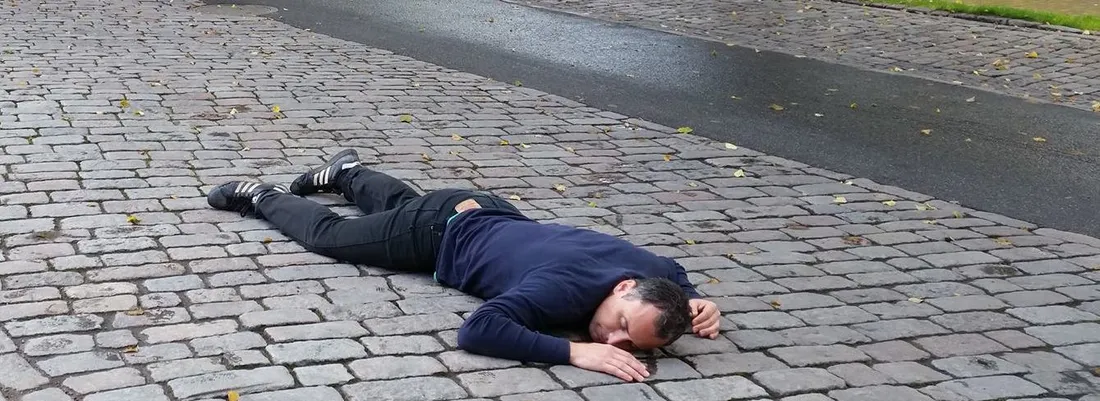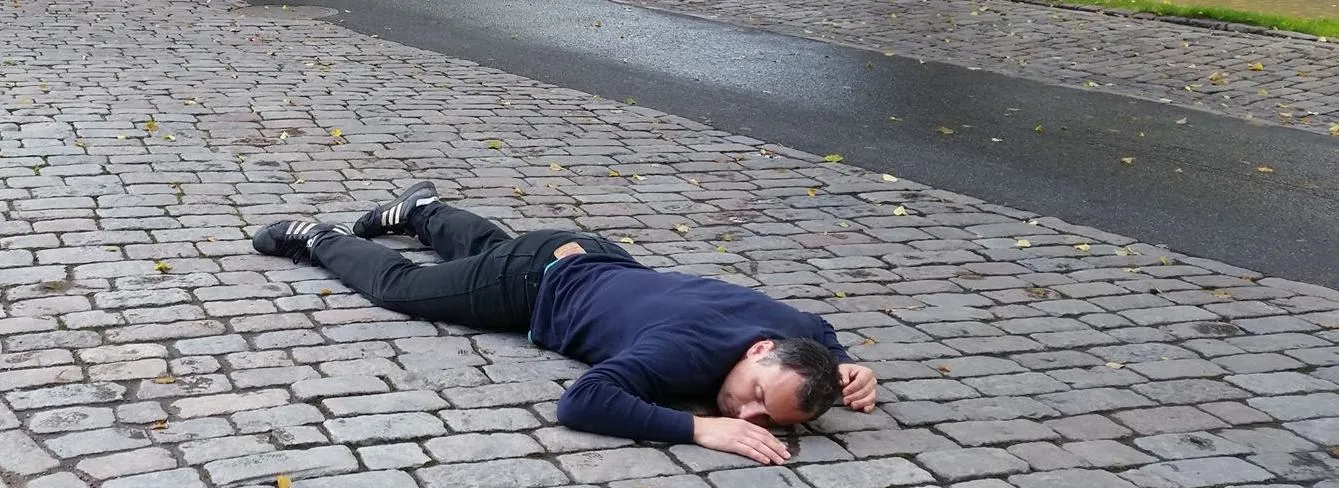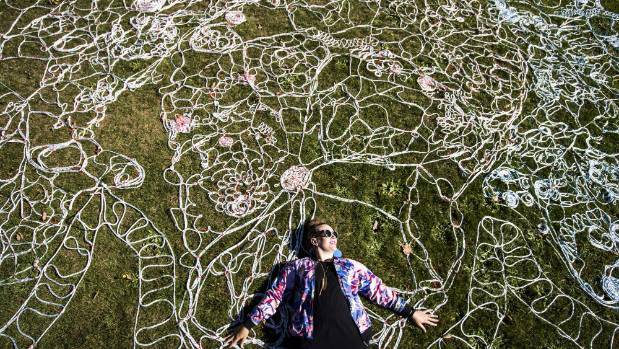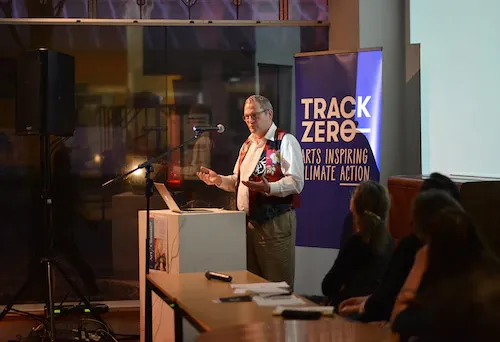SOAPBOX - "Our hothouse climate needs the goddam arts"!
Written by


Here’s the paradox: we’re facing the existential crisis of the millenia while desperately - sadly - trying to hang on to the same culture which got us into this mess in the first place. As a society, we’ve grossly underestimated the role of art in climate solutions.
Scientists tell us we have a critical window – less than a decade - to take actions that will prevent climate events that may be beyond our capacity to adapt. A “warming world” no longer describes the situation. Unless we act urgently and powerfully, we run the risk of descending into what scientists now call the “hothouse climate”, affecting our very existence.
This isn’t about science. Climate change is the biggest cultural challenge of all time, so we should look to our cultural producers to help us respond to it. As Bill McKibben of climate action group 350.org once wrote, “though we know about it, we don’t know about it. It hasn’t registered in our gut; it isn’t part of our culture. Where are the books? The poems? The plays? The goddamn operas?”.
“Though we know about it, we don’t know about it. It hasn’t registered in our gut; it isn’t part of our culture. Where are the books? The poems? The plays? The goddamn operas?”
That was in 2005. Fast forward and the number of creative practitioners responding to climate change are on the rise, but the understanding of the role and responsibility of the the arts to help shape our response to climate change is surprisingly muted. Here are some exceptions.

Gabby O'Connor: The Unseen (installation view), 2018. Photo: Brendan Fastier on Stuff.
Nature and climate as subject
Artist and educator Gabby O’Connor has worked alongside scientists in Antarctica. Her latest project called 'The Unseen', an art-science-community project, helps children to explore the way marine ecosystems are managed in the face of climate change. Nelson interdisciplinary artist Nic Moon designed major elements of Auckland’s Ranui Public Library to trigger our connection with trees and nature. And acclaimed artist Michel Tuffery was accepted in the 2018 Creative NZ and DoC Wild Creations programme with field research project, ‘Pelagic Birds beyond Fanua’, that included working with college students to explore conservation of our unique environment and species.
"Raising awareness is just the beginning. The arts ... can even be a disruptor, successfully challenging incumbent values and ideas – including how we innovate technology and sustainable urban design."
Creative work by choreographer Carol Brown; visual artist Mark Harvey; videographer Joseph Michael; artist and writer Amy Howden-Chapman; community-based artist Tamati Putuwai; award winning musician Rob Ruha; visual artist Jenna Packer; musician Warren Maxwell and artistic directors Mīria George and Nina Nawalowalo are just a few other examples of creative practitioners working with aspects of nature and climate change in their practice. For some artists, drawing on ancestral cultural values, symbols and art forms is intrinsic to their work.
Storytelling and the arts are also central to many successful, public engagement programmes, like the Kermadec Project; Pacific Climate Warriors; °TEMP; Urban Dream Brokerage; and the Common Ground Hutt Public Arts Festival. These kinds of aggregators can unite both audiences and practitioners, with real benefits in both collaboration and community awareness.
But raising awareness is just the beginning. The arts have a potent role to play in contributing to innovation, knowledge and co-creation across diverse sectors. They can even be a disruptor, successfully challenging incumbent values and ideas – including how we innovate technology and sustainable urban design.
While we’re all about the arts, don’t think for a moment we’re immune to the science.
Yet for all the successes, the arts remain surprisingly understated as a force for positive change. Sometimes arts and artists endure the false flattery of being seen as the object or end point, the destination, rather than the road to get there. The arts can also be perceived as a luxury, something to be enjoyed at leisure once the real, grown up work has all been completed (and let’s not underestimate the role of children in all this).
Besides, the grown ups couldn’t be more wrong. For one thing, the work is never done: sustainability’s not something you set and forget. You can’t stop doing it, just because you’ve done it. For another, in large part, the arts are the road to resilience, or at least, a major part of the road map. That’s because the science is clear: it’s our culture that’s cloudy, and stuck in a time warp. Enter: the arts.
Track Zero
At Track Zero, we recognise that climate problems have cultural solutions. We’re a new charity supporting artistic projects that contribute to the cultural shift needed to grow resilient communities and slow the rate of climate change. We also want to celebrate and build on the fantastic work already being done by talented creative practitioners and projects around New Zealand.
So if you’ve got a project that might support this kaupapa, please get in touch. We really want to hear from you.
And, while we’re all about the arts, don’t think for a moment we’re immune to the science. It’s no coincidence that we’ve got leading climate scientist James Renwick and specialist in complex systems and networks, Shaun Hendy on our board, alongside arts powerhouse Carla van Zon, Tanea Heke of Hāpai Productions, and me - a policy and development specialist in sustainable communities and business.

Track Zero trustee James Renwick. Photo supplied.
Our first project is the Arts + Climate Innovation Roadshow: an opportunity for creative communities to learn the very latest climate science and share ideas about how the arts can help get us on track to a zero carbon future. We want to explore how more can happen and ways this can be supported. To register, head over to Eventbrite and check out our social media @trackzeronz.
Working in partnership with the Royal Society Te Apārangi, the free, two hour event is traveling to 10 locations around New Zealand, from Whangarei to Dunedin, co-hosted by major art organisations, like: the Auckland Museum, Pataka Art + Museum, and the Christchurch Art Gallery and WORD Christchurch.
Track Zero supports creative practitioners and others to get more traction on climate change and climate action. Eventually we want to create and curate a range of proactive visual and performative art works around New Zealand.
So if you’ve got a project that might support this kaupapa, please get in touch. We really want to hear from you.
Shaping a future we want, that remains below a 1.5 °C global temperature rise, requires a major cultural shift. Science has identified the problem and provides solutions. But it’s culture - the stuff of messy, subjective, wonderful humans - in which narratives of hope must light the pathway of innovation.
Our hothouse climate needs the goddam arts!
Track Zero is running a series of get-togethers around the country to support artists working with climate-related subject matter. Check out their itinerary, and get along to learn what's in it for you, and the planet.
And try using #artclimateaction, #artsmatter, #climatematters #nzart, #powerofart, #climateactio